Introduction
If you identify as a sensitive, introverted, intuitive, or empathetic person, or you know someone who is… Then this week's Goodness Lover podcast episode is for you! This week, we sat down with Dr. Natasha Fallahi to talk about how this special group of people is often more susceptible to gut disorders, autoimmune disease, why that is the case, and so much more!
Watch the Interview:
Dr. Fallahi explained:
😷 The fascinating connection between sensitivity, trauma, and subsequent illness
🧠 The neuroscience of sensitivity (what is *actually* happening in a highly sensitive person’s brain!)
🤕 Practical tools you can use to overcome this trauma, and how this sensitivity can actually be your superpower
😯 The different types of trauma and how they are reflected in the body
💆♀️ Treatments you can turn to to align your mind and your body
And much more that can help you discover the root cause of healing! 🎙
Additional Resources
To connect with Dr. Natasha Fallahi and discover more of her work, you can find her on Instagram and Facebook. You can also visit her website here.Transcript
Sarah: Hello and welcome back to the Goodness Lover Show. If you identify as a sensitive, introverted, intuitive, empathetic person, or know someone who is, this episode is for you. We sat down with Dr. Natasha Fallahi to talk about how this special group of people are often more susceptible to gut disorderws, autoimmune disease, and why that is the case. You'll discover the fascinating connection between sensitivity, trauma and subsequent illness, practical tools you can use to overcome this trauma, and how this sensitivity can actually be your superpower. We cover a lot of ground in this interview. And I'm sure you, as a sensitive person or someone that knows someone that is will get a lot out of it. Let's dive in.
Matt: Dr. Natasha Fallahi, we are so excited to have you on the call today and talk about the neuroscience of trauma. It's a topic that our community has been wanting to dig deeper into. So, thank you so much for being on the show today. Dr. Natasha Fallahi: Thanks so much for having me again. I had so much fun last season when we recorded.
Matt: No, for sure. We've had you on one of our series and we've had you on our podcast, so people are more familiar with your work. So, we're actually excited to go a little bit deeper into this whole thing of the mind, body connection. And one of the curious things that when we first started interviewing a lot of doctors, it's like we went through all these obviously, functional protocols with how to heal your gut.
Matt: Then at the end, a lot of doctors were saying, "Yeah, a lot of people just don't get that final breakthrough with their disease or their gut until they deal with this stuff like trauma. And they deal with this mind, body connection." And weirdly, when people do, there's is a massive breakthrough in their health. So, that lit up, I guess, for us, like a little interesting, we need to dig deeper into this, but we're also stuck in our minds and not like, we need to get more into this woowoo stuff, which we're excited to get into as well. So, you are our guide into this today.
Dr. Natasha Fallahi: Wonderful world.
Matt: Yeah, take us for a tour into this. And maybe just start with, someone that's listening to this has autoimmune disease. I know you deal a lot with Hashimoto's or gut issue. How could the mind be involved? And let's just start there.
Dr. Natasha Fallahi: Yeah, definitely. That's a great question. And I, like you mentioned, have had my own journey with healing and auto-immune condition, Hashimoto's, celiac, and just a lifetime of having chronic illness and being really sensitive to my environment, food sensitivities, chemical sensitivities.
And then, as I went on my own healing journey and learned a lot of this stuff, that's what led me to become a doctor and dive really deep into understanding why was I experiencing these? So, I studied neurology. I studied immunology. And I really looked at gut health and microbiome, all of that sort of stuff. But I also really looked at personality and personality types, and the way that our mindset is, and the difference between how people view the world, whether they have a positivity or negativity bias, and how that actually impacts their experience in terms of their health.
So, this connection between chronic illnesses, as particular auto-immune diseases and somebody's disposition, somebody's experienced behavior in the world. And a lot of it falls in the category of a really prominent fields called psycho-neuro immunology, which is that connection of our mind, our nervous system and our immune system. And how, for example, something like negative emotions are inflammatory and things like gratitude can be really anti-inflammatory. So, there's actually a lot of understanding and science behind these concepts now. But to me, that intersection of chronic disease and particularly autoimmune disease is, even for people who may not have identified that way. So, that's why I often refer to people who are going through this journey as sensitive people, because maybe they've had this experience where they felt more sensitive than their classmates or their peers, or their siblings growing up, but they maybe don't necessarily explore that through a medical perspective or a health perspective, or they haven't gotten a diagnosis.
But there really is this connection that I've seen in my practice and in my personal life of people who have a heightened sensitivity to their internal and their external environment, and the development, but also the healing of chronic diseases.
Matt: Awesome. So, well, Sarah is really a sensitive person. And I'm like a lighthouse in the storm. I'm not sensitive at all. So, asking for a friend.
Sarah: No. Yes, Matt is being sarcastic because he is very sensitive and he likes to just pretend it's just me.
Matt: So, it's our toxic masculinity. Let's just move that out of the way. So, asking for myself now, if you're one of these people, what are some of the telltale signs that maybe you're one of these sensitive type?
Dr. Natasha Fallahi: Yeah, that's a great question. And I think there's a lot of words that are thrown around that get jumbled together, but there's actually distinctions in these categories. So, there's a few labels or terms that you'll hear, but there's distinctions to them. So, one word you might hear that you would either self identify with or somebody else would be called is an empath. And an empath, really just refers to somebody who has a heightened sense of empathy. And I'm going to get into what that means in terms of how their brain works and how their physiology is actually different. But they actually just have a deeper sense of empathy, meaning they can feel more than the average person. They can feel the emotions around them, the energy in a room. They can feel somebody else's pain more than others. And so, it's really kind of that empath experience.
And empaths are often drawn to being helpers or healers, because they really feel that suffering of other people and they want to alleviate it. So, whether that suffering of a person, of an animal, of the earth and seeing destruction anywhere in a person's experience, they want to help.
Another term that you might hear is highly sensitive person, or sometimes it's abbreviated HSP. And this is actually a term that's used a lot in the psychology fields. And a lot of times they overlap, but it's actually different than that empath, who feels it in their body. The HSP actually just has a greater response to a perceived stimulus. So, they might have a stronger response to bright lights or loud sounds, or those types of things. But a lot of times, I know myself, I identify as both an empath and an HSP, so they overlap in that way.
And then, if you do want to label it as more of the woo-woo stuff, there's people who are really intuitive. And they might even say, "Oh, I have some psychic abilities or something." But there are these ideas of these clear senses. So, there's clairvoyance, claircognizance, clairaudience, these sorts of things. But honestly, what this is describing is people who are really in tune with their intuition and their gut feeling. So, they're able to just know things really deeply. And I'm going to talk about what that looks like neurologically, it's actually a concept called interoception. So, we'll get into that.
Matt: I was about to ask that, so that's exciting.
Dr. Natasha Fallahi: And finally, the other word you might hear clumped in here is introvert. And often that might describe somebody who might be like really withdrawn or antisocial, but that's not an accurate explanation of the word introvert. An introvert that comes from yin yang psychology is actually a term that describes a person who needs alone time to just recharge, to feel energized again. So, you could have a social introvert and you can have a shy introvert. But really introverts, it just refers to like when they spend time doing activities with other people, because of this neurological response that we're having in terms of being a little bit more sensitive, they get a little drained, so they need alone time to charge before they go out again. But you can have the shy introvert, which is that antisocial. People who like to do things on their own. But these words are often clumped together.
So, there actually is neuroscience behind it, and in the field of psychology, psycho-neuro immunology, that really looks at the difference between sensitive people and nonsensitive people. And some of these, you may have come across when you are talking about functional medicine and all of that. But if we really dive into it, there's, I'm not talking about maybe five key areas.
So, the first one is the mirror neuron system. So, in the mirror neuron system is actually, this part of our development that allows us to learn through imitation. So, the monkey see, monkey do aspects, that's our mirror neuron system. So, we learn through body language, through facial expressions, through emotions. And this is a really essential part of childhood development, and our social life, and healthy relationships, and education. And everybody has experienced this in the sense of, for example, if you see somebody yawn, you might also feel like you need to yawn or get tired. Or you see somebody who's sad or crying, you might get a little worried or sad with them or even laugh. And then, that contagious feeling of laughter. That's from our mirror neuron system. So, that's the first area that we can use to explain this.
The second area, it's a big portion of our brain. And I'm going to refer to in general as the insular cortex. So, the insular cortex is actually where we do a lot of our sensory processing, so filtering information taken in from our senses, so smell, sound, taste, sight, touch. And all of those are coming through what we call the gate channels of the thalamus. So, that's supposed to open and close to let information into our brain. And because there's so much information in our environment around us all the time, we have to filter it out to function.
So, people who have sensory processing issues or are HSPs, often have a much more open, welcoming thalamus that lets lots of information in, right? So, they're actually getting more information about the temperature in the room and the way things feel on their body, or sounds and lights, which can quickly lead to overwhelm or stress, because that part of their body gets overwhelmed with just information. But it also processes what we talked about here, the interoception, so that internal cues from our body. So, are we hungry? Are we cold? Those sorts of things.
So, a highly sensitive person might have more activity in this area, and that's why they might be more sensitive to changes in weather or room temperature. Whereas a nonsensitive person is usually just more chill. They're just like having a more relaxed time. They don't have to think about all these signals and cues coming in. And so, those are ways that you can start to see people's experiences are actually different, but they're based in these neurological parts of their body.
But the insular cortex also processes self-awareness, emotions, conscious desire and it controls what I'm sure guys talk a lot about here at Goodness Lover, but the autonomic nervous functions, the nervous system. So, the sympathetic, fight, flight, freeze or fawn, that kind of stress response, versus the parasympathetic rest and digest. So, you can imagine here, we're already seeing that connection of people who have chronic gut issues or we're thinking about their brain gut issues. If they're taking in all this information, they're overwhelmed, they're constantly being thrown into that stress response more so than a nonsensitive person. It's going to be harder for them to switch to that rest and digest, and digest their food well. So, it doesn't necessarily matter if they're eating the healthy vegetables and they've removed gluten, or these inflammatory foods from their diet, if they're staying in that stress response because their sensory experience is being overwhelmed, it's still going to be hard for them to digest. Does that make sense? Have you guys seen that?
Matt: Yeah. A hundred percent. I guess, it's interesting as well, what comes first, a lot of people with gut issues have anxiety. But do they have anxiety because they're sensitive? And the chicken or the egg, what came first with the gut or the brain, or their sensitivity, that was the foundation of their anxiety? So, that's a really interesting way of looking at it.
Dr. Natasha Fallahi: Yeah, definitely. And I think that that question comes up a lot, the chicken or the egg question. And it's really fascinating because when you think about it, it can start either way. You can start by having anxiety increase that stress response, and then it changes the way you digest. And that becomes kind of a vicious cycle. Or it could go the other way, where you have digestive issues, and then it creates a stressful environment in your body. So, you start processing stimulus differently.
And the good thing about that, the good news about the chicken and the egg is that it doesn't really matter if it was the chicken or the egg, which one started first, because once you start to learn the root cause of this and balance it, you can address it and reverse it, and improve it in the same fashion. It doesn't matter what started it.
And so, a few other aspects of things that really impact people who are really sensitive, have chronic illness, chronic gut issues, is this area of the insula called the anterior cingulate cortex or this anterior cingulate gyrus. And this area actually processes compassion, and suffering, and empathy. So, you can see that if you have a lot of activity in this area, you might be more of an empath. You're going to have a higher experience of compassion and empathy for people around you. However, like I said, this area also processes suffering. So, you're going to have a higher experience of suffering. So, for people to have that ability to tap into compassion and understanding, they often have had a pretty painful or type like suffering type experience themselves, or they're picking up on it in their environment.
So again, it's like a double-edged sword here, where you're increasing the activity in that part of the brain. And it's contributing to these strengths you have, but it can also contribute to overwhelm that you might experience. And so, this is another way of understanding this. And when you do, you can start to do things to bring up the strength of that and make sure that it doesn't get overwhelmed.
So, that anterior cingulate cortex is heightened activity in empaths or sensitive people. And on the flip side, they've found that there's actually massive under activity in this area for psychopaths. When they've studied the brains of psychopaths, and they've seen people who lack empathy and who also don't necessarily experience as much suffering themselves, they find under activity in this part of the brain. And so, again, we talk a lot about this, that gating issue of not filtering the information, and then the heightened activity in those parts of the brain.
But then sensitive people also have a higher sensitivity to dopamine. Their receptors are more sensitized to it. So, when we talk about brain health and those neurotransmitters, somebody who's not as sensitive needs a higher stimulating activity to activate that reward system. So, they might enjoy cliff diving, or they might like really loud parties or raves, or those sorts of things. Whereas a sensitive person could maybe look at a flower blooming outside, or hang out with their dog, or stare into a loved one's eyes and get a lot more of that dopamine reward response without doing these crazy activities that are going to give them that rush.
And yeah, it's really fascinating to think about it that way, because we can look at these chemicals in our body and say, "Oh, we all have them. And they give us these experiences." But you have to also look at how people are predisposed, and if they're going to process those experiences differently, which should really inform the way that they live their life, and they set up healthy lifestyle practices. Or in my practice as well, the way we approach their clinical picture and their care plan, because it's going to look different than a nonsensitive person. Right?
And another one that I talk a lot about, I want to talk about chemical sensitivity. So, I know you guys educate a lot about like chemicals and toxins, and things like that, and how they can impact the microbiome and the gut health, and things like that. So, people who have a lot more chemical sensitivities often have lower chemical tolerance, which often correlates to lower self tolerance, which leads that cascade of autoimmune disease getting triggered in those ways. So, when you look at this, this is actually often hindered inability to detox, whether it's through genetic snips or just sludge built up in our lymphatic system, but this lower ability to actually bio transform those chemicals.
And so, people with gut issues or chemical intolerances, it's not just that there's something wrong with them as they start to look at this root cause of why that sensitivity came about, they can often improve this. And I love to look at the flip side of that is, if they have that sensitivity, they can actually develop it in a way where maybe they become a really great chef, because they can smell things better, and with less stimulus than other people, or blend their own perfumes or be like a, I don't know what it's called, the sommelier who can smell wines and pick out all the different flavors in it, as opposed to just being overwhelmed and burdened with that chemical sensitivity of the toxins in their environment.
Matt: If we ever get into an Uber, end up with Sarah and her mom, am sitting there and they're going, "Smells good." And they're like, "Oh my God, I need to put the windows. I've got a headache."
Dr. Natasha Fallahi: I'm the same way.
Sarah: And my mom's like, "Oh, you shouldn't do this. This is fragrance is bad for you. Do you do this all the time?" He's like giving the Uber driver a hard time.
Dr. Natasha Fallahi: I'm the same way. Sometimes I step out into an elevator with other people are like, you're in a hotel lobby or something, and you're just like, oh my gosh, people wearing so much cologne or the popery around the room fresheners. It's definitely one of my weak points, but that's important to identify because then you can do practices or build up a lifestyle, and make sure that you detox those areas, or you strengthen those areas as much as possible, so that you don't feel overwhelmed or overburdened by them.
Sarah: I really like that whole explanation. I think as sensitive people, and Matt and I obviously both resonate with what you're saying personally. It's nice to hear, I guess, the biochemical physiological reasons as to why you're that way, because I think it can be maybe a bit isolating, maybe. I remember feeling as a kid like, why is no one else sad about this? Or just feeling very alone with all my feelings. But it's really nice to hear that. And I like that you shared the positives of it as well. We're much less likely to be a psychopath, so that's good. I'll take that.
Matt: That wasn't the only positive by the way.
Sarah: Oh yeah, there was many positives.
Matt: There's actually careers.
Sarah: Yeah. There is careers. And smelling the flowers is great.
Matt: Yeah. This career is for us.
Sarah: Your mom always said you'd be good at being the wine, the nose.
Matt: Yeah, it's true.
Sarah: She always thought that would be a career for Matt.
Matt: Don't expose me a lot.
Sarah: Oh yeah. That's a macho man. So, you mentioned before that obviously, the sensitive types and empathetic types possibly in your experience are more likely to develop certain illnesses. And maybe it'd be good to dive into that some more, what you've seen, and I guess, how trauma ties into all of this.
Dr. Natasha Fallahi: Yeah. Yeah. That's a great question. And I'd love to start by talking about trauma and what I mean when I say trauma, because a lot of times that's the precursor to any sort of symptom or disease development. And so, when I say trauma, it's really an experience of overwhelm. So, anytime anybody experienced anything that they didn't have the tools at that moment to process what was going on and make meaning out of it, it was stored somehow as a trauma in their mind and body.
So, we can look at trauma also like in the field of psychology, there's this idea of big T trauma and little T trauma. And to break that down really simply, big T trauma is trauma that is life-threatening. So, this is something that you had this experience and you could have lost your life in it. So, it could have been war, a natural disaster, catastrophe, criminal violence, a car accident, some sort of physical abuse. And so, those are considered big T traumas.
But little T traumas in contrast are things that, they don't actually threaten your life, but they do impact the quality of your life. So, this includes things like neglect, emotional abuse, bullying, shame, experiences that imprint shame in us. It could even be just failure. Even in childhood, if you had an experience where you really thought you failed at something, chronic stress. But also things like gaslighting or people have chronic pain in their body, chronic illness, these sorts of things. It could be infidelity. It could be relationship stress, financial stress, family stress, parental stress. These are all little T traumas.
The thing that I want people to understand is that when we are going about our life, our brains and our bodies, and honestly our spirits and everything are looking for meaning in our life. So, when we come across something that overwhelms us and we can't understand the meaning behind it like, why did this happen? Or what does this mean? That's when we get overwhelmed and it becomes traumatic for us.
So, people then normally what would happen in an overwhelming situation is you go into sympathetic response, the stress response, right? Fight or flight. But the idea is that after you're out of that life-threatening situation, you then are in a place where you're safe and you can unpack that experience and say, "Okay, what did this mean? What can I learn from it? How can this expand my consciousness?"
But often in our scenario, like right now, the world we live in, we are in constant sympathetic stress, stress response, fight or flight. And we're not allowing ourselves the time or the tools to sit down and unpack, and process those stressors. And obviously, the big T traumas, the life-threatening ones, those are things that definitely needs to be processed. But these tiny, tiny insults, along the way, the little T traumas that reduce our quality of life, if they're not processed either, they stay as stressors in our body and in our mind, and they start to impact the way that we experience things. They create disconnects. And when we store things in our body, I mean, I'm also a body worker. I'm a chiropractor as well. And I studied neurology. I studied the physiology.
But when I see somebody's body and they're chronically like hunched over or they're guarded, or they're protected, this is all adaptive responses from our nervous system and our mind, body space. Because at some point it served us well to do that, right? Maybe in childhood, we were bullied and we hunched over a little. And that became this way of us understanding our orientation in the world.
Or you can imagine like for example, if you had a stressful event, it was a flat tire in your car. And then you had to replace that with a spare tire. And it's smaller and a little long here, but you just keep driving on it. And you get used to that, just being your new set point. So, that is where we start to go into contorted experiences, whether it's the biochemistry contorts a little, our physical bodies contort the way we see the world, and we start mistrusting people or thinking bad stuff is always going to happen. This is how you can see over time, trauma in the sense of overwhelm can lead to illness and disconnect, and chronic stress in our body, and not allowing that rest and recovery.
So, when I work with people, we often start with, of course we look at what they're experiencing, their symptoms. Do they have a diagnosis, an autoimmune condition? Have they had any of these emotional experiences? But then to go deeper than that, I break it down into a trauma quadrant, is what I call it. So, you can just imagine like a big T like a quadrant, right? And on this axis, we have the big T trauma and the little T trauma, which I also will call objective or subjective trauma sometimes. So, these are things I'll have them map along the way. Can you think of examples of stuff that was subjective or objective, like a stressful relationship or a car accident you were in, or something like that?
But also an example I love to use all the time as I went to a concert with my husband, and it was for an artist that we both really loved. We had loved since our teens. And it was at the Paris Philharmonic, and we were really excited to go to this concert. So, it wasn't like a bad event. It wasn't anything negative happened or stressful thing, but you know concerts, right? Especially for famous people, right? They're very crowded. You wait in line for hours. You get in there, everyone is pushing towards the stage. And for a nonsensitive person, that objectively or subjectively is a very positive, even fun experience for them. They might feel super charged by all the energy and the people around. For a sensitive person like myself, despite the fact that I loved the music, I loved the concert, I've actually walked out of that with a very subjective, traumatic experience, the bright lights, standing, that overwhelm, the sensory overwhelm.
But because I'm really in tune with my body, I actually stepped out of the concert several times. I went and sat in the bathroom, just like to discharge some of the energy. And then I went back in. And you can imagine like a younger me would have put myself down for that or push through it, or berated myself, and to be like, "I'm wasting the concert. I have this opportunity to be here. I spent all this money and this time to be here, and I'm just leaving now." But now that I'm more healed and I have that compassion for myself, it's like, I have to really tune into how I'm processing the world and not create these new subjective, traumatic experiences for myself.
So, we map out on this axis, things that are objective, subjective, and then things that happened suddenly like a car accident, or something that happens slowly over time. And we start there and we start looking at, has this happened for people? Because a lot of times they haven't even acknowledged it. They'd go, "Oh yeah, I definitely, I got this infection once." That's easy for them to recognize like, "I got traveler's diarrhea when I was like traveling somewhere. And ever since then, my gut has been really bad." But have they ever identified, "Oh, I had a really stressful breakup." Or, "When I was a child, school was really stressful for me because I was bullied." Or something like that. "I had a big traumatic event in my life." And starting to piece those together to their chronic illness kind of stories. So, those are just some examples that I've seen a lot or in my own life.
Matt: No, I think that's really on point. I think for a lot of people listening, they would be so self identifying with some of those events. And particularly, at the little T thing, I think is a really a powerful thing to think about. Because there's been so many times we've been on Q&A's with experts and doctors, and then you just, eventually you can piece it together. This happens, gut issue, this happened, disease. Or people then don't make the connection, and then go, "When did this all start?" And then upon deeper work, there was something major there.
Matt: And for those that are still maybe questioning this, I've just heard it explicitly stated by these aren't woo-woo doctors, until they deal with this, they're not going to solve these problems. They have to deal with these issues before they will have that full breakthrough and healing. And so, I think it's so important and it's so cool that you're doing such a good job explaining that.
Sarah: It's good work.
Matt: So, what are some of the tools that we can use to process this?
Sarah: Or have more resilience perhaps as a sensitive person. What's the way forward?
Dr. Natasha Fallahi: Yeah, definitely. And my approach to it is just like every other functional approach to it is first identifying, assessing where a person is at, right? Assessing where their sensitivities even lie, if they have any of these trauma wounds in these areas. And I'll break it down pretty quickly. But when I look at a person and they're already a sensitive person, whether they've gotten a diagnosis or they just are like, "Yeah, I've been sensitive my whole life. That's just what my friends and family say about me. Or I've noticed this." I really start to identify, there's six types of sensitivity that a person can experience. And again, you might experience one or all of them. But I'll just go through some of them quickly. And the beauty is that once you identify it and you can see this is where you generally feel the overwhelm, this will also be the place where you have some sort of superpower or strength in it.
So, the first one is mental sensitivity. And these are people who, I like to say, have really good error detection systems, or they're really good at seeing pattern disrupts or problem solving. So, for example, I line all my supplements up in the cabinet and the flavors are forward. They're all lined up. And if one of them is turned a little bit sideways, I actually get stressed out by it, because I have a really strong error detection system in my brain, in my body. So, that can cause me a lot of stress, where I start to see things placed around in different ways. And you can imagine a child who has a strong mental sensitivity, and they're constantly seeing changes in their environment. But these people are also really good at problem solving, but they're really attuned to visual or spatial changes in the environment, whereas other people might just like really gloss over that. So, you can imagine there's an overwhelm happening.
The second one different than mental is emotional. So, these are, emotional sensitivity is people are really in tune to other people's emotions and feelings, and needs. And this is a gift also. This is being able to really empathize with people in that emotional way, really tune into non-verbal cues and understand other people's triggers and traumas. But as you can imagine, the flip side of this, the overwhelm looks like you getting overwhelmed with other people's stress, and then you jumping into action and becoming a caretaker, or trying to fix the problem.
And in psycho-neuro immunology, there has been this recognition of a type C personality. And this is a caretaker to a fault, somebody who sacrifices all their own needs to take care of others. And these people are prone to cancer. And they're prone to autoimmune disease. So, you can see there that this gift of like really feeling with other people can turn into something that's a disease for yourself.
And then there's physical sensitivity, which we talked about, lights, sounds, textures, clothes, even pain receptivity, pain response. And that can also be addressed. And you can actually turn that into your strength of like really being tuned into the body and spatial awareness, and things like that.
Chemical sensitivities, which I think you guys see a lot in your community. We talked about food sensitivity, perfume, smells, pollution, car exhaust, smoking. But again, when we talked about the flip side of this, people can become like wine tasters or perfume developers or things like that, or just really great cooks or chefs because that sense of their smell is really heightened.
Social sensitivity. So, these people are really tuned into like etiquette and tradition, and culture. And I would say of all the sensitivities, this is probably my least strength or wound, or anything, because I couldn't care less about holidays or different recurring things. But there's some people who are really, really in tune to that. And their strength is that they're really great at teamwork and they're great team players. They're great at conflict resolution and bringing together communities for a greater cause.
And then, finally there's this idea of an energetic or a vibrational sensitivity too. And this is where you hear people start to talk about, they picked up on a bad vibe from somebody else, or maybe the people who also are sensitive to wifi or EMF signals, things like that, where they're not quite tangible, you can't quite see these things, but as we start to measure energy on different levels, these are people who have sensitivities to those things and they actually are really tuned into their body awareness. So, they can be, everybody who's sensitive can be, but there's especially can be these canaries in a coal mine that can tune into what's going on in the environment before other people can.
And so, when you talk about what people can do, I think identifying what their sensitivities or where their wounds are, is really important. And then also finding out where in the stage of healing they are. Because those stages I've seen over and over again, and you probably, when you talk to experts, see this too, but often people start out just feeling like normal. And they're just like, "Oh, my life was fine before, and I felt good and normal." But they'd have good days and bad days. And they'd go up and down, but eventually what started happening is they would have mystery symptoms.
So, phase one, I call mystery symptom, where you start to get maybe a weird rash or you start getting a little bit depressed, and you're just like, "I don't know why." But you just get this conglomeration of stuff that isn't obvious. And then what you notice is that your good days are not quite as often or you don't feel quite as good. And your worst days are a little bit more often. So, it's this downward trend of you start feeling worse, right? And that leads to stage two, which is rock bottom.
And I think most people who've gone on any healing journey, know what their rock bottom is, right? And this is where you usually they get a diagnosis or they seek help, or they just have to quit their job, or they're not showing up for themselves or their family in the way they used to. Then at that point is where they often start looking for answers. And if that comes from a diagnosis or it comes from them changing something about their lifestyle, this is where they start to see either relief or healing.
If they don't continue looking for that root cause, like you guys always talk about with functional medicine, they'll often just find something to get by, right? Something to just suppress symptoms. But if they keep asking why and they go for the root cause, they'll get to stage three, which is root cause healing, right? And this is where functional medicine is phenomenal. But you can also look at like functional neurology or functional immunology, or these things where we're like, where's the imbalance happening? Who cares about the diagnosis at this point? Is just like, why aren't you feeling good? Why is there imbalances in your system? And let's just improve all of them to get you to feeling back to normal or back to how you used to feel. And if people keep going down that path, which you guys, the Goodness Lover community, you get to stage four, which is your new normal, which is where you experience wellness. And you actually use these tools to keep growing and expanding your health and your vitality, and your longevity, and those sort of things.
So, to really match somebody to the best tools and therapies for them, you have to figure out where they have overwhelm, where they have trauma, where they have wounds, whether it's mental, emotional, physical, chemical, social, or energetic. And then you have to figure out what stage they're at. Right? And I know that I didn't get into the specifics. I can get into that next, but is that what you were asking in terms of how?
Matt: That's really good. I was actually curious as well, if any stories of people just also put the theory into practice, into someone that you've been.
Sarah: As we get into the therapies so as well.
Matt: Yep.
Dr. Natasha Fallahi: I have a lot of therapies to share too. I think that, again, people start in a lot of different places. I imagine, a lot of your listeners have tried a lot of diet changes and nutrition, which is a really great place to start because that's what's fueling our bodies, right? That's fueling ourselves. And if you're not dialing that in and you're not looking for the gut health, the microbiome, all of that, it's going to be really hard to even have basic energy to have capacity to fuel anything beyond that. So, that's a really powerful tool that I actually think a lot of other communities don't emphasize enough. When you look at conventional medicine, they're not talking about how important the gut is and how important nutrition is, and leaky barriers and all of that.
You guys are constantly giving people this amazing education about all this stuff they can do for themselves to not only reduce inflammation, but if you think about every time you guys have said reduce inflammation, you can also think about discharging overwhelm, which also means healing trauma, right? Because those kinds of negative feelings, stress and trauma is inflammatory. So, really anything that people are doing to reduce inflammation is a tool that you can use to begin the healing of these types of traumas.
And to go even further, there's these really great, I guess, you could call them bio-hacking type things that people have talked about like light therapy, right? You could go into cold laser, infrared light, all of that sort of stuff, red light chromotherapy, all of that. And they have really big impacts on our nervous system, our detox systems, all of that, especially chemical sensitivities and things like that. And just making sure you sweat, right? Movement, sweating every day, whether that's in a bath, Epsom salts with hot water, or sitting in a sauna, moving enough so that you're sweat to get that stuff out.
Just because you have a specific type of trauma, like we talked about big T, little T, or if it's like a physical or chemical, your body doesn't really distinguish it. To your body, it's all just stress, right? It's stress that's lodged in a certain place. And if we keep recurring it, we need to dispell this.
So, you can use physical therapies, like we talk about movement or body work to actually release emotional stresses or emotional traumas. It's not like you have to match a physical with a physical, or a chemical with a chemical wound with a therapy. The body is connected, right? We are connected in this mind, body, spirit way that it all communicates. And that's also what psycho-neuro immunology is looking at how connected our thoughts and our mind, and our physiology, and our physical bodies are. So, then you keep going down that route, you can look at body work.
So, chiropractic is really great at resetting and activating the nervous system. Especially doing upper cervical adjustments, but really any adjustment of the spine or joints, helps communicate on the vagus nerve and reset the brain stem. So, that's a really powerful access point to the nervous system. It's not just like neck pain, back pain. It is, but our spine runs through our neck and our back. So, we're communicating with our brain when we do that.
A massage and acupuncture are really powerful modalities. Lymphatic drainage, these sort of things, where we actually access the body to get the stress out and get the trauma out as well, where it's been stored. And then, traditional talk therapy and getting into counseling, and that sort of stuff. And a lot of people have seen success with more esoteric therapies like hypnotherapy or energy medicine, Reiki, that sort of stuff. And there's a whole field of an energy psychology, which is really fascinating that helps people talk stuff out, but then also use meridians or acupressure points, or chakras to find where that emotional stress has been stored in the body and release it that way.
So, those are some specific modalities that you can use, but I think the same with you guys talking about healthy lifestyle, reducing toxins. Those are all stressors. Sinking your circadian rhythms, your sleep night cycles or your day night cycles, and getting to use these other things like breath work. And you can look at all of that, like neurologically, you can look at it, mind, body approach, and nature, animal therapy, creative arts. There's so many ways of going about healing this stuff. And for me, it's like, I am a doctor, but I never set out to be a doctor. I was actually originally an artist. And I have a dual bachelor's in art. So, to me coming back and getting this really creative, personalized approach to healing has been the most fascinating thing of finding where somebody can really match their lifestyle and their expression to healing their whole life or their chronic illness or their mind, body, spirit.
Matt: Awesome. Yeah. Well, again, that's a great section there on some really practical things people can start with, depending where you are on the spectrum, I guess. Maybe you're listening to this thinking, "Well, this is a lot of new information." There's a lot that you've said that's just so practical, that you can just start with today to see how you feel better. And of course, there's the entire spectrum, which is also awesome as well, depending on where you're at.
Matt: So, the point is, if you have identified with something in this talk and you're feeling like, "Wow, that's me, that's me, that's me." Do something about it, right? Go and talk to someone. Get this work done. It's so important. And I think it's a really cool work that you are doing, Natasha, I think. And in particular it makes sense looking at your backgrounds. I was just watching you speak, I'm like, "Yeah, that sensitivity, that intuition, that often an artist is intuned into and combined with the science is a really cool mixture."
Sarah: Yeah. Super interesting.
Matt: And I think you've really created something that is going to serve a lot of people. So, thank you for the work that you're doing and continue to do. So, if someone is listening to this going, "Man, Natasha, you're my next guru. I need help." How do they get in contact with you. And do you have any online resources?
Dr. Natasha Fallahi: Yeah, definitely. So, I mean, my website is kind of the central place where just drnatashaf.com or my Instagram handle, but I write a lot of blog posts, which are free and available to people, where I break down a lot of these topics. And I do work with a select number of people, one on one.
But something that actually Sarah mentioned earlier about feeling alone in your experiences or something, I recognized that was happening a long time ago. So, through a lot of this, I started to see the importance of healing with other people and community. And so, I actually started an online community called Club Sensitive. And what we do is we dive into all these topics of mind, body, spirit healing. And it's really a community for anybody who feels like they've had an experience of being a little bit more sensitive in any way that I've talked about today. But it's really at the intersection of healing and feeling. Because I find a lot of times when you try to go into healing or health, or wellness, you're not met with a lot of that empathy or creativity, or any of that. And vice versa, if you find a community that's really gets you, understands you, it has that a home feeling, they also don't necessarily have the resources to help you navigate some of this stuff through functional medicine or science, or psychotherapy, or any of those sort of things.
So, I would encourage people to check that out, if it's something that interests them, it's just clubsensitive.com, and that's where we're just gathering a bunch of sensitive people to go through the process together.
Matt: Awesome.
Sarah: I love that. How cool.
Matt: Army of sensitive people. That's awesome.
Sarah: I love that.
Matt: Yeah. So, you're active on socials as well.
Sarah: Yeah. So, that was the Dr. Natasha F, for those who are just listening.
Matt: Great. Well, thank you so much for everything you've shared. We've gotten a lot out of it. There's a lot to think about. And also some new things that we can try ourselves.
Sarah: And we feel validated. Isn't that nice?
Matt: Yeah.
Sarah: There's other people like us, so many. And it's so nice that you are, I guess giving words to something that so many of us just feel and don't have a framework for understanding, and let alone how to move forward with it and make the most of this, I guess, like super power we have, but it's not always expressed like that.
Matt: It's always framed negatively sometimes as well.
Sarah: Yeah. That's right.
Matt: Like, are you too sensitive?
Dr. Natasha Fallahi: Definitely, I've found a lot of the healing comes when a person starts to recognize that it's actually a strength of theirs, because otherwise you're approaching all of it with this avoidance or fear-based thing where you think something's wrong with you and you're going to fix it. Yeah, exactly. Like shame around it, and shame is inflammatory. So, you're never really going to heal in that space when you're trying to avoid pain, avoid suffering, or fix something about yourself.
So, the more you can start to understand that experience and meet kindred spirits, both of you, the first time I chatted with you was so lovely, because it's like you have that experience of kindred spirits and go, "Okay. Now, how can we also individualize this and go through this journey together, knowing that we're not weird, there's nothing wrong with us." And there is strength in that belonging in that community.
Sarah: Thank you.
Matt: Awesome. Well, certainly give Natasha a follow at the very least, and then go check out her resources. And we'd love to hear from you as well in the comments below about, are you a sensitive person? And I'm sure that-
Sarah: I know someone that is, and they need to hear this.
Matt: And don't be shy if you're a sensitive, a man or a woman, comment.
Sarah: It's probably not the sensitive people that usually respond in the comments.
Matt: We need to hear from you. Awesome. Thank you so much for everything you've shared today. And we look forward to talking to you again very soon.
Dr. Natasha Fallahi: Thank you so much for having me. And thanks for the great work both of you guys are doing.
Matt: That was cool. I really enjoyed that. We'd love to hear from you, as we said in the comments, the sensitive people. Do not be shy.
Sarah: Do not be shy.
Matt: Do not be shy at all. We want to hear from you as to what you got out of that. And it's something that's so easy to overlook because of the work involved. People sometimes don't want to go there. They don't want to process some of these things. But I hope that from the guidance we just got, you don't need to perhaps try and wrestle the entire thing at once. You can start with some simple things, and then move up from there.
Matt: But we can't reinforce this enough how many times we've spoken to doctors, and then at the end, they all say quite something similar, that if you've got trauma like this in your life, it's something that you should really get professional help with. And yeah, we'd encourage that.
Sarah: Yeah. Well, thank you again for joining us for yet another Goodness Lover episode, and we look forward to seeing you next week.






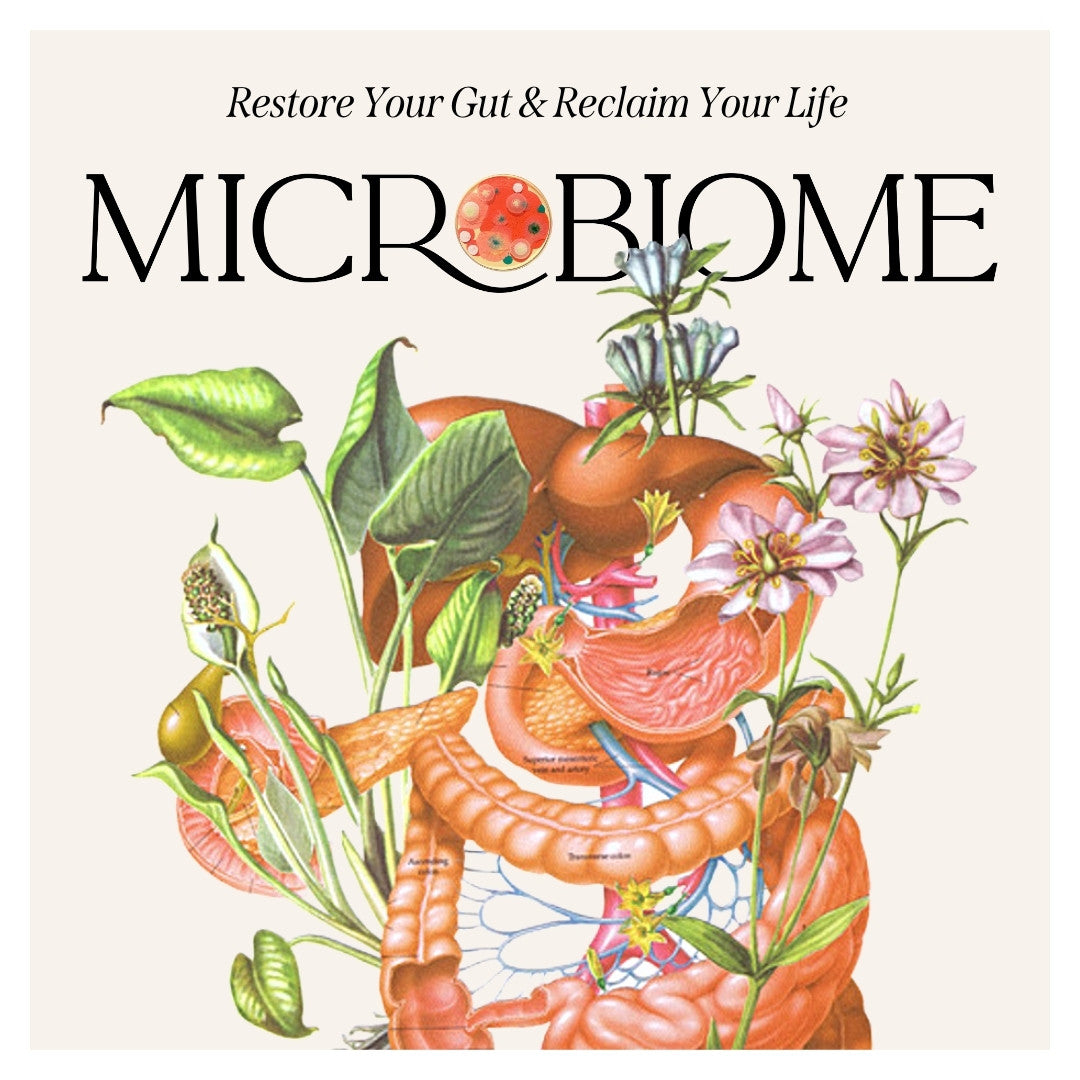

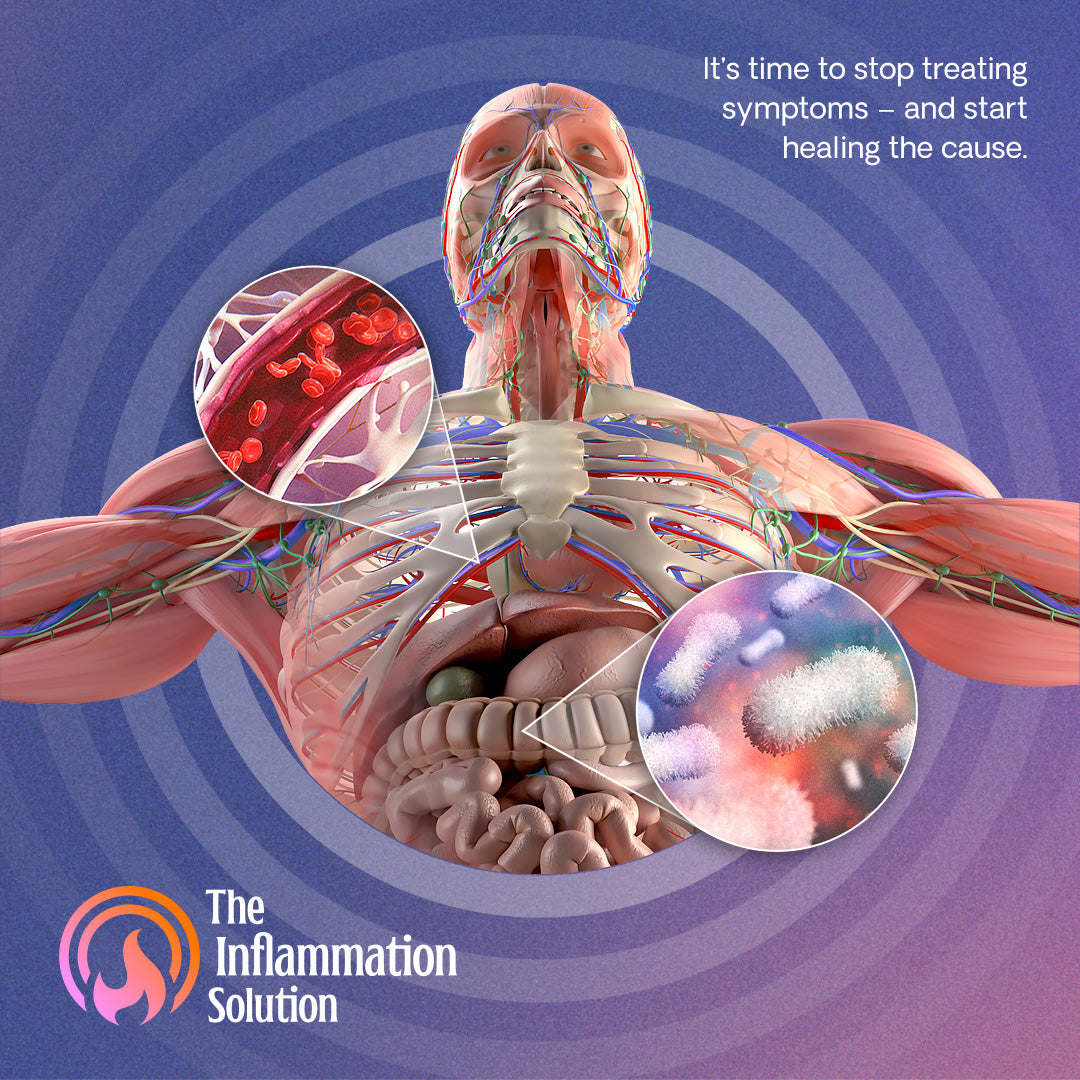
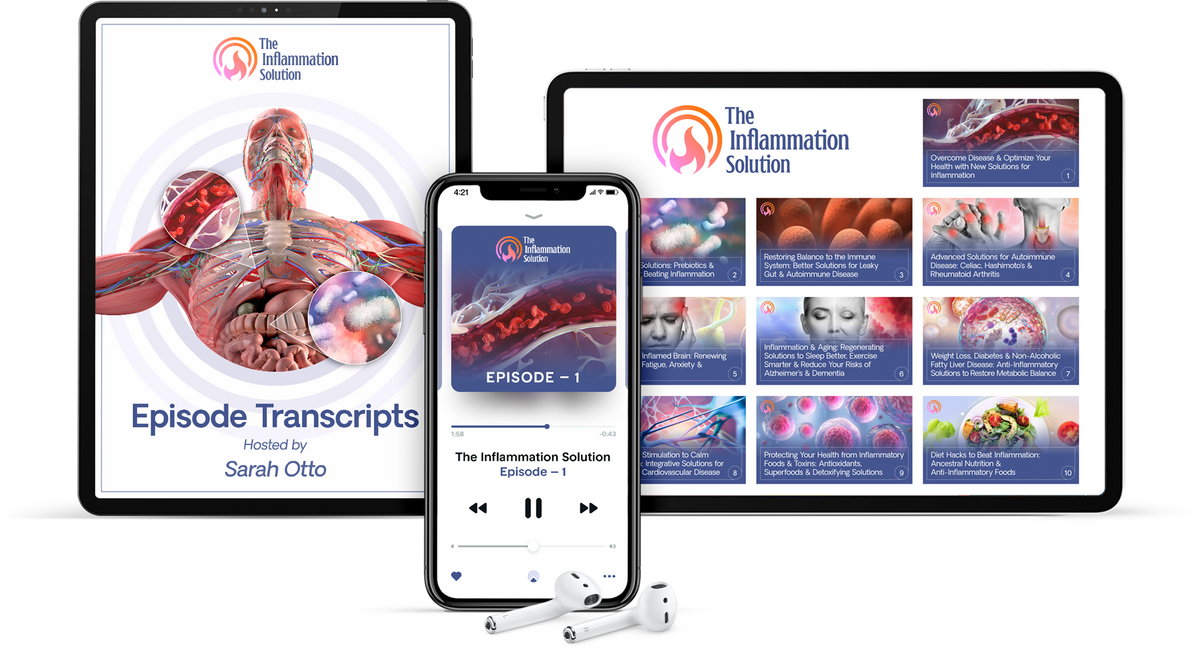
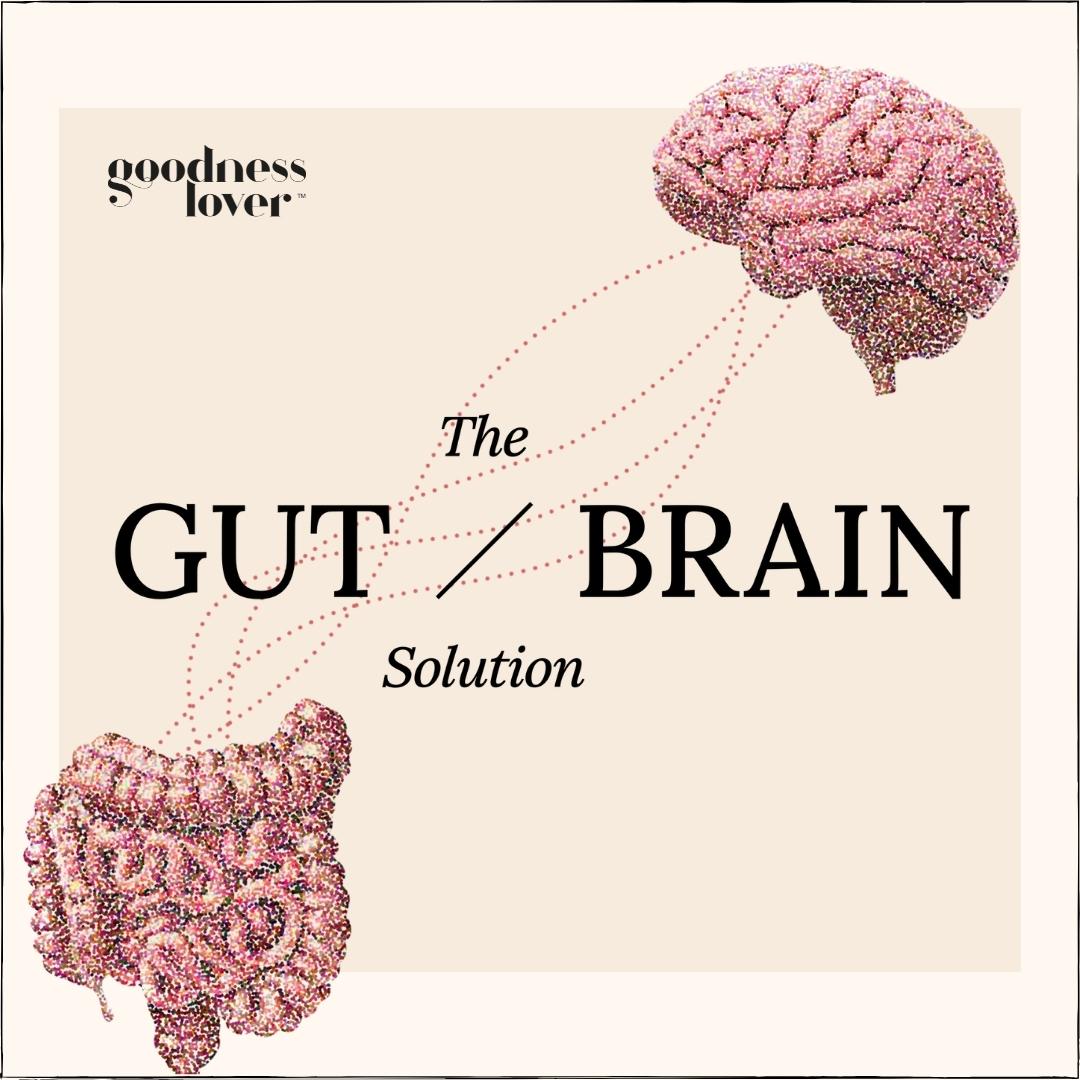

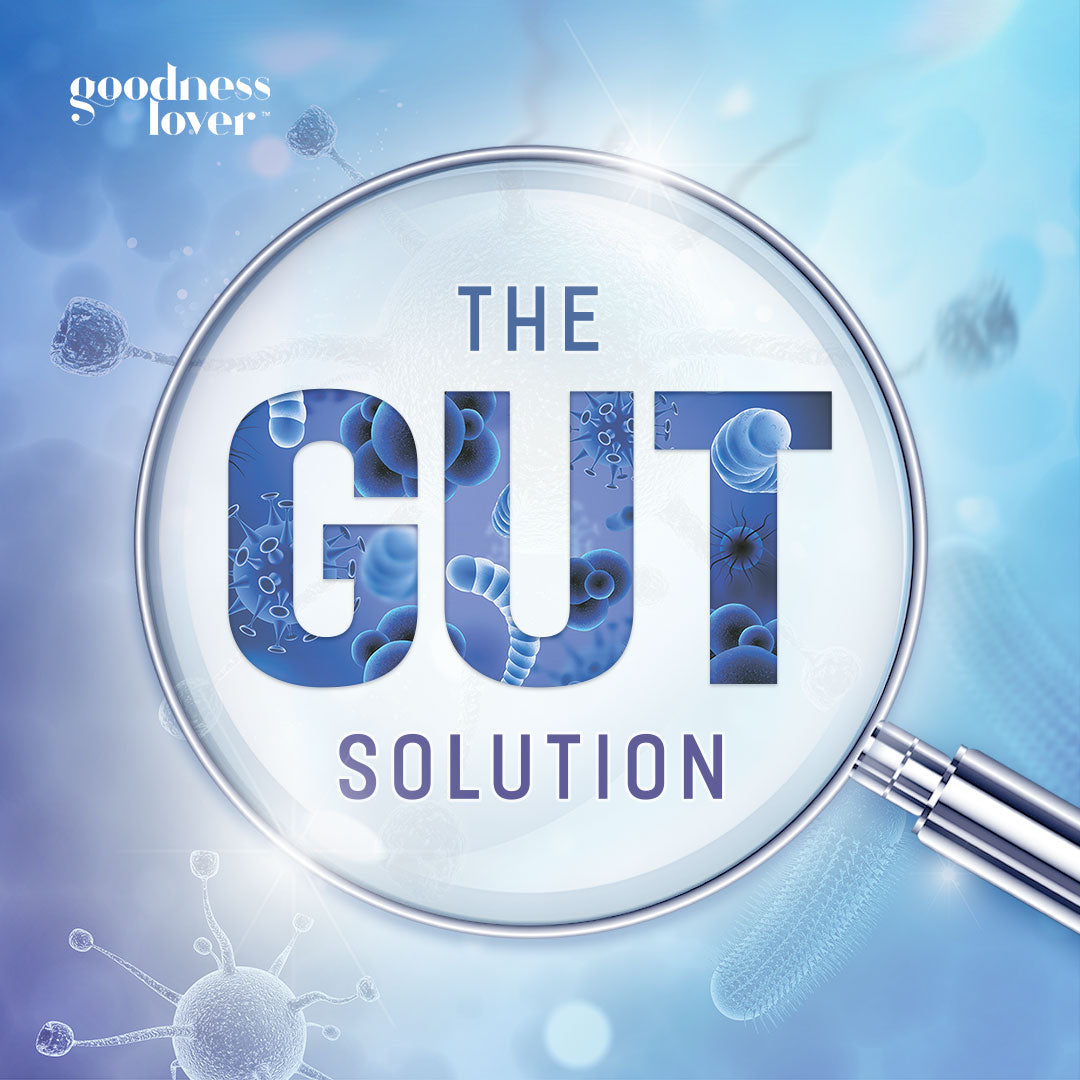
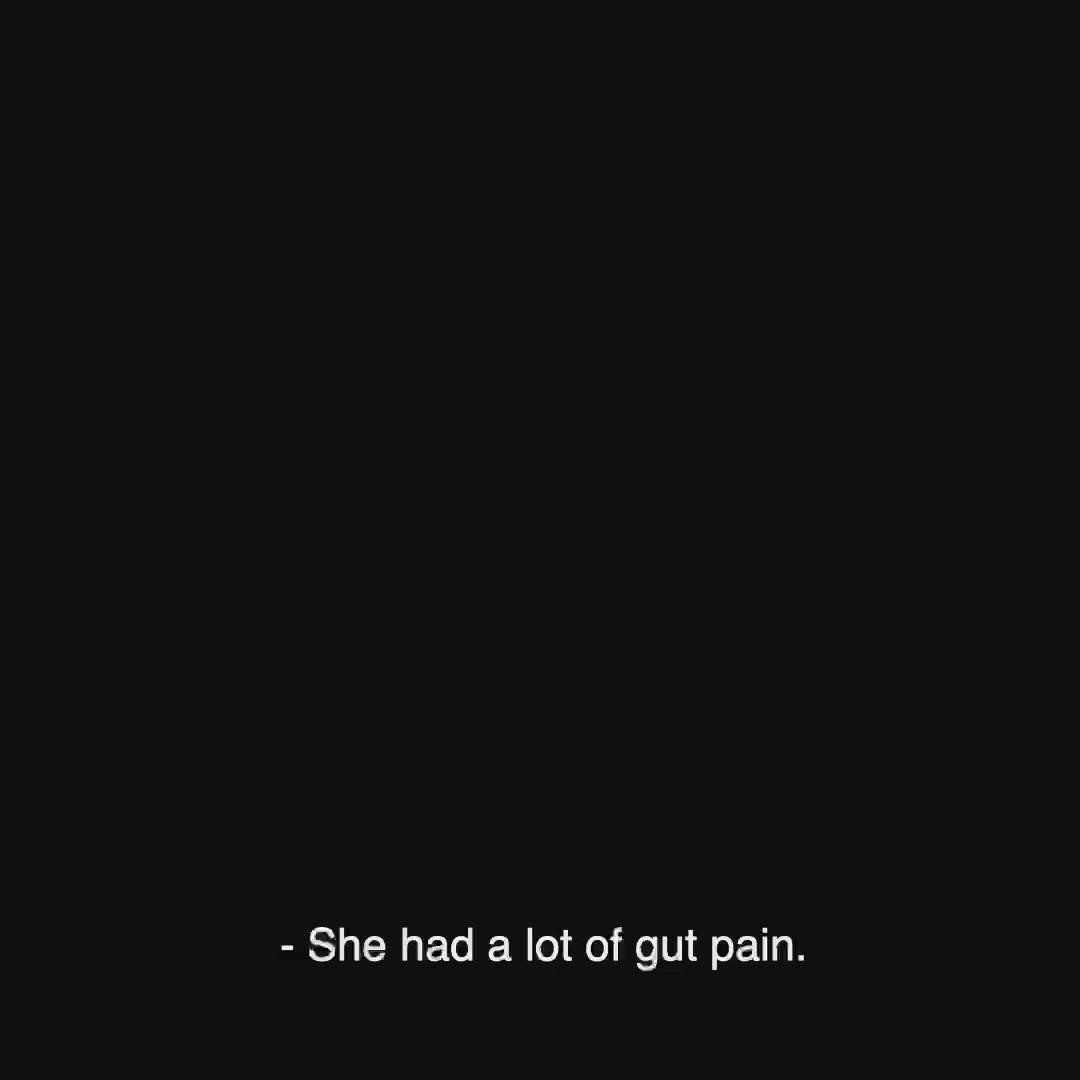
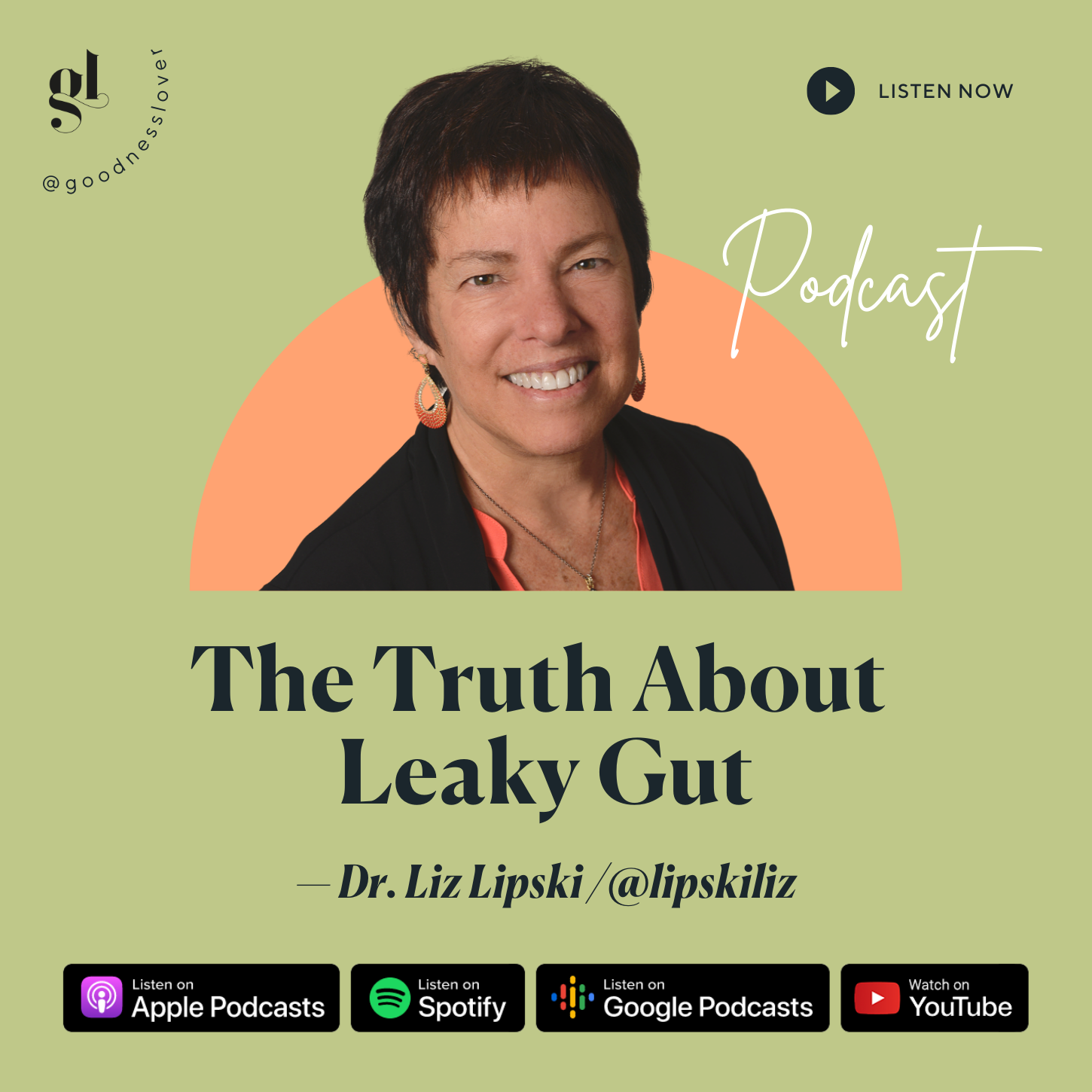
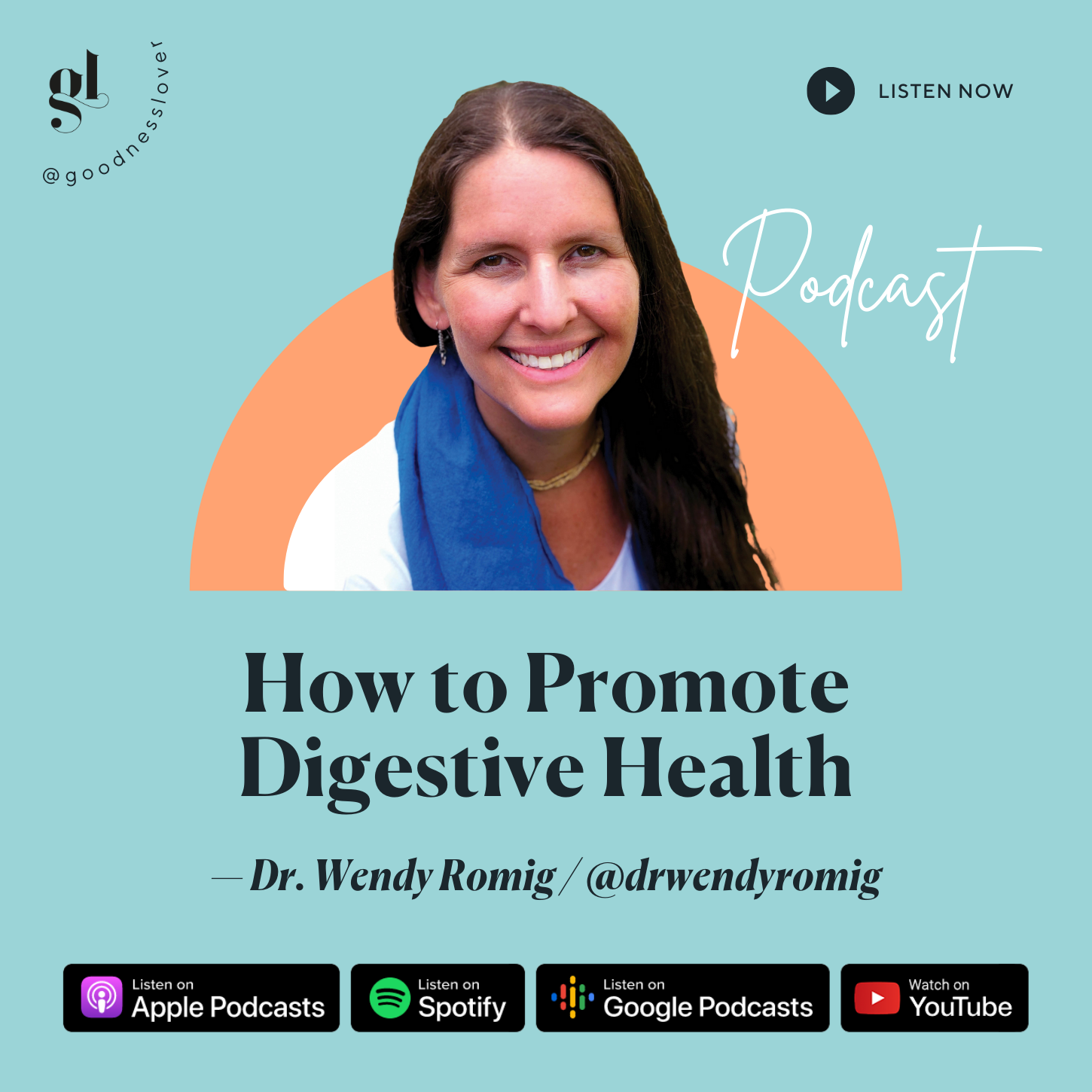

What Do You Think? Comment Below: